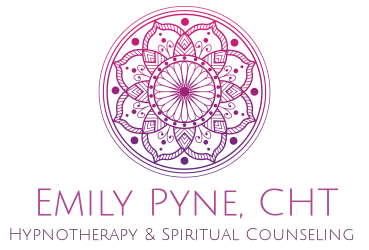Sleep Like A Husband: A Mom's Guide to Self-Hypnosis for Quality Sleep
Sleep is the number one thing people ask me about when I tell them I’m a hypnotherapist. This guide is written with sleep-deprived mothers (and fathers) in mind, but it can help anyone who is struggling with falling and staying asleep.
I always knew that the first few months after having a baby would be difficult. I knew I’d spend many sleepless nights with a crying infant. What I didn’t know was how dramatically my sleep habits would shift. As a breastfeeding mother, I had to awaken every two to three hours for the first eight months of my daughter’s life. In those early days, I would look forward to the days when she would start to sleep through the night. I promised myself that it would happen soon and that sweet sleep was waiting for me, just around the bend. And then, one miraculous night, she finally slept though. I woke up at 5:00 AM in a panic, convinced something horrible had happened, only to find her peacefully snoring. This happened again the next night, and again for several nights after that. I was thrilled that she was finally sleeping, but was horrified to find that while she slept, I continued to wake every 2-3 hours throughout the night. My sleep rhythms were broken.
I asked around and discovered this sad tale was one that many other new mothers were also experiencing. It seems that as mothers, we not only become conditioned to wake up during the night, but we also wake up fully. When I would wake in the night, I would immediately have a hormonal wave go through me like a rally cry, banging at my mind, yelling “WAKE UP, THE BABY NEEDS YOU! CHECK THAT SHE’S STILL BREATHING!” After checking that the baby was breathing, I should have gone right back to sleep, but I’d be wide awake with a renewed expectation that surely the baby would cry soon and I’d have to get up all over again. And so, the pattern of not sleeping persisted.
Luckily, I had the presence of mind to try applying hypnosis to my predicament. I decided I would try a bit of self-hypnosis and see if I could shift out of my night-waking patterns. And…it worked! Full disclosure: it only lasted for about a week and then my daughter got sick and I had to start all over again. So, through my experimentation, I discovered that self-hypnosis works for changing sleep patterns, but it does require more than one session and some maintenance to bring continued relief.
Here’s how it’s done. As you’re lying down to sleep for the night, take a moment to relax your body, checking in with your head, your face, your shoulders, arms, hands, back, legs feet and toes. Release any tension you feel in any of those places. Then shift your focus to your breath. Follow your breath as your breathe in and as you breathe out. When you’re feeling sufficiently relaxed, start saying affirmations surrounding the changes you want to implement around sleep. Speak these affirmations in your mind, slowly and lullingly like they are a boat drifting on a sea. You don’t have to have a planned script, you can just say things as they come to you and repeat them as often as you like:
I am relaxed and ready to sleep. Sleep is going to come quite easily for me tonight. I will find myself relaxing more and more every night and falling asleep easier and easier. As time goes on, sleep will come more and more naturally to me. I will find that it becomes easier to relax and let go of my thoughts. I will relax more and more deeply. The more I relax, the more easy it will become to rest and sleep. I will know that my baby will be okay while I’m sleeping. I know that even though I will be sleeping very deeply, I will find it easy to wake up if he/she needs me. If I wake up, I will also find that it’s quite easy to return to a deep sleep and I will be able to sleep even deeper than before. I will continue to sleep very deeply and soundly for the rest of the night. Every time I wake up, I will remember that I can return to a deep sleep and will relax. The more I relax, the easier it will be to sleep. I will save all worries for tomorrow, and will find peace in my sleep…
You can continue on with other affirmations that you would like to implement. As in the above example, always keep them phrased as positive affirmations (avoid words like “not, no, won’t”). I would recommend that you practice this every night when you first go to bed. Continue on with it until you actually fall asleep. If you notice other thoughts arising, let them drift by and gently return to your boat on the sea of sleep affirmations. If you wake in the night, repeat the process until you are asleep again. In time, you will likely find that you don’t need to practice as often because sleep will begin to happen more naturally. I would also highly recommend that you try recording yourself and listen to the recording when drifting off, or even at other times in the day for added support. If you try this practice, let me know how it worked for you in the comments.
If you would like additional support with falling and staying asleep, or have some other problem you’d like to work on, I encourage you to reach out to a Depth Hypnosis practitioner or book an appointment with me.

